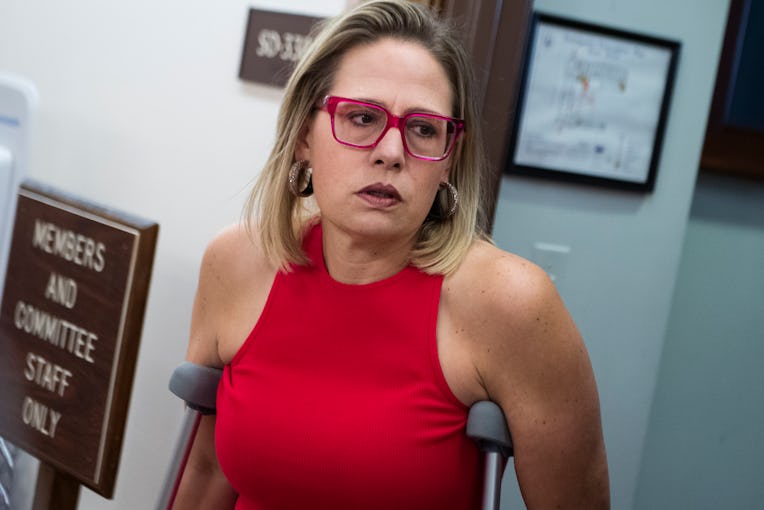Sinema's Drug: Drug Money
Those neon wigs don't buy themselves

For weeks, media figures, politicians, and whoever styles the ModCloth ecomm models have been trying to divine the inner workings of Sen. Kyrsten Sinema’s mind. What could possibly have kept Congress’ quirkiest bisexual from compromising with her colleagues on Joe Biden’s “Build Back Better” reconciliation bill — a package that could not only resuscitate a recession-starved economy, but shape Virginia’s tight gubernatorial race (where Biden’s agenda has figured heavily into the campaign), widely considered a litmus test for the 2022 mid-terms and the Democrats’ ability to pass pretty much anything for the next three years?
It’s pharma money. From the Daily Poster:
Pharmaceutical interests have been flooding in donations to Sen. Kyrsten Sinema, D-Ariz., who has emerged as the chief roadblock to Democrats’ plan to allow Medicare to negotiate lower drug prices.
Between July and September, Sinema raised at least $100,000 from the pharmaceutical industry and donors at a private equity firm in the business of outsourcing pharmaceutical research and development, according to her campaign finance report filed Friday.
For anyone besides Axios reporter Hans Nichols, who finds the legislator endlessly mysterious, Sinema’s drug cash will confirm a widely-held hunch: that she is holding out on the Democrats’ bill due to a drug pricing initiative that would allow Medicare to negotiate with pharmaceutical companies. The measure is a key component of the bill — one that consistently polls among Americans’ top priorities and could rack up, per leftist rag the Wall Street Journal, “hundreds of billions of dollars” in savings for the federal government over the next decade.
But who gives a shit. Definitely not Sinema, who reportedly voiced her opposition to the initiative directly to Biden last month. The discussion took place just after a drugmaker-backed group debuted an ad campaign championing Sinema’s “Independence, Bipartisanship. Straight talk.” It seems Sinema is so independent that last quarter, she accepted some $55,000 from drug PACs and executives, and another $47,000 from leadership at a private equity firm that contracts with biopharmaceutical companies. Maybe she’ll spend it on one of these.